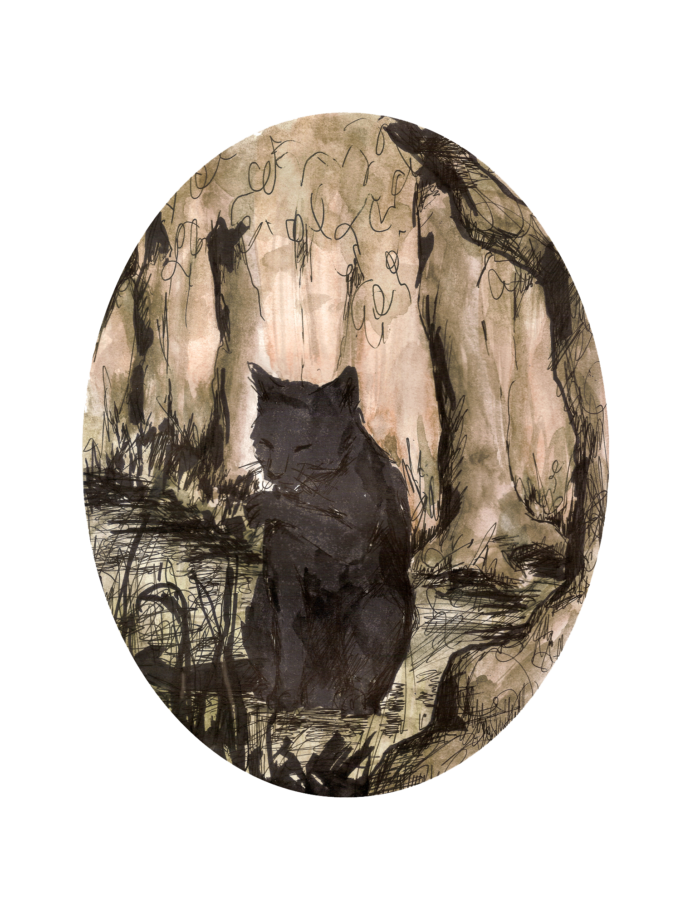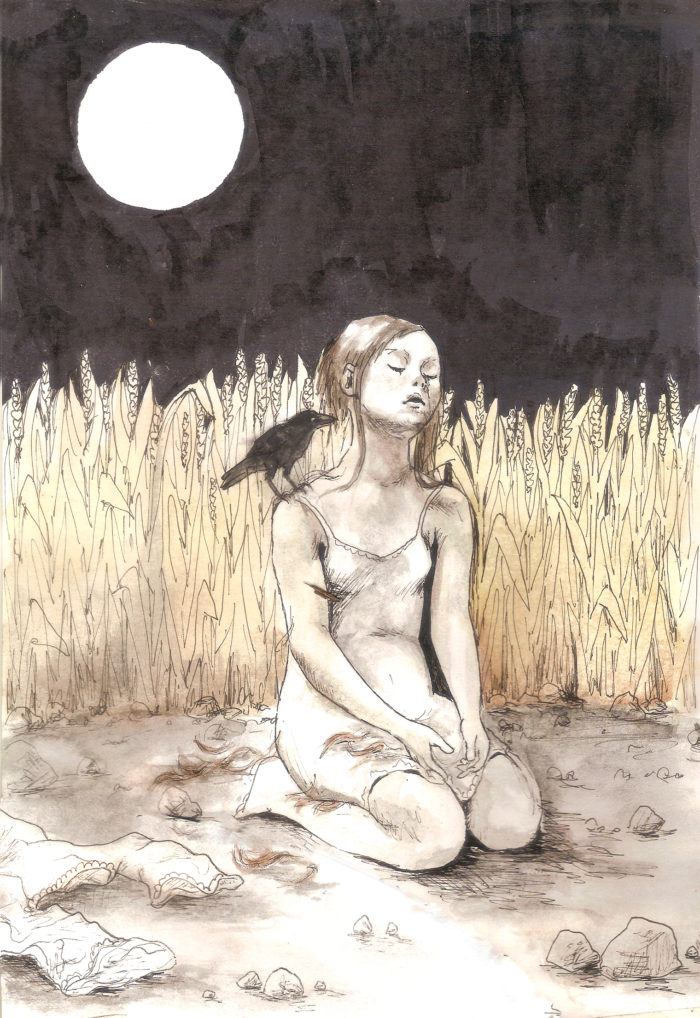In the days before even my mother was a girl, there lived a lord of these lands who was so protective of his daughter, Isobel, that he kept her locked in a room at the very top of the tallest tower in his castle, and he forbade everyone from seeing her. And so she grew up all alone.
One day, a travelling prince came to town and a huge ball was held in his honour at the lord’s castle. Noblemen and gentlewomen from across the shire came dressed for the occasion, and from her window Isobel marvelled at the extravagant beauty of the gowns the ladies wore.
“I wish, just once, that I could wear a dress of such beauty,” Isobel said, looking down in despair at the drab rags that her father insisted she wore.
Unbeknownst to Isobel, it was her 18th birthday that very night, and a passing fairy heard her plea.
“Lonely Isobel,” the fairy said as she appeared out of the thin night air. “Here is your dress.”
And in an instant Isobel was dressed in a gown more opulent than any she had seen below. Pale blue silks were adorned with exotic white furs, and all was overlain with sparkling gems of every form and colour.
“It’s beautiful,” Isobel said, and for a while she danced joyfully around the room in giddy excitement. But eventually she returned to the window and looked down at the still arriving guests.
“I wish I could go to the ball to dance with them all,” Isobel said. “Rather than be here all alone on my own.”
“Of course,” said the fairy. And as quick as that, Isobel found herself at the heart of the ball.
Even there, amongst the richest and most refined people of the land, Isobel stood out. Her radiant jewels shone brighter than the stars. The elegance of her dress made the other guests look as if their gowns were ill-fitted rags borrowed from their servants. And her joy… O, her joy!
The great prince could not fail to notice her, and soon he asked her to dance. Isobel agreed, and for the rest of the evening they could not be parted. She was the centre of all attention, and it was to her like a dream. People talked to her, listened to her, complimented her, laughed with her and danced with her. She had never before realised how silent her room was, and how still. How complete her isolation had been.
Nor how constricted she had been. She swirled around the hugeness of the hall, dancing in every corner, sweeping her dress round every pillar, sashaying past every doorway, lingering only at the windows to see each new view across the courtyards and the gardens.
And to see her tower anew, from the outside. To see it how others saw it, if they saw it at all.
The next day, the prince and all his guests left. In the dull morning light her outfit was transformed – the jewels now looked like lumps of milky quartz; the furs resembled clumps of wool; and the dress itself looked enormous and absurd as she walked awkwardly on her heels across the cobbles of the market square. The looks she received now were not of admiration but of prurient disdain.
“I wish I was back home,” Isobel said, and she found herself returned to her home, back in her rags, locked in her room at the top of her father’s tallest tower. But she could not be returned to her earlier state of solitude, unhappy as it was, for it was only now, having experienced friendship and company no matter how briefly, that Isobel would forever be cursed with true and unending loneliness.
And she finally grasped the fullness of her father’s cruelty.
__________
1. Originally written in October 2013, but heavily rewritten since.
2. A Cinderella variant (obviously)
3. The title comes from the Bjork song Isobel, which I always remember as saying “Lonely Isobel / Married to myself” rather than what it actually says

